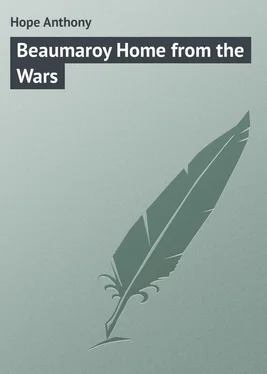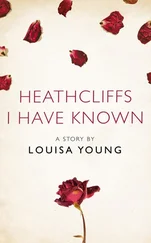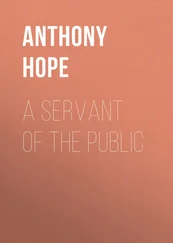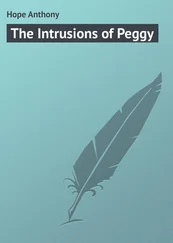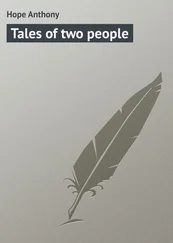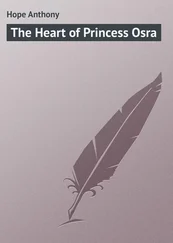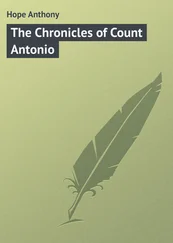Anthony Hope - Beaumaroy Home from the Wars
Здесь есть возможность читать онлайн «Anthony Hope - Beaumaroy Home from the Wars» — ознакомительный отрывок электронной книги совершенно бесплатно, а после прочтения отрывка купить полную версию. В некоторых случаях можно слушать аудио, скачать через торрент в формате fb2 и присутствует краткое содержание. Жанр: foreign_prose, на английском языке. Описание произведения, (предисловие) а так же отзывы посетителей доступны на портале библиотеки ЛибКат.
- Название:Beaumaroy Home from the Wars
- Автор:
- Жанр:
- Год:неизвестен
- ISBN:нет данных
- Рейтинг книги:4 / 5. Голосов: 1
-
Избранное:Добавить в избранное
- Отзывы:
-
Ваша оценка:
- 80
- 1
- 2
- 3
- 4
- 5
Beaumaroy Home from the Wars: краткое содержание, описание и аннотация
Предлагаем к чтению аннотацию, описание, краткое содержание или предисловие (зависит от того, что написал сам автор книги «Beaumaroy Home from the Wars»). Если вы не нашли необходимую информацию о книге — напишите в комментариях, мы постараемся отыскать её.
Beaumaroy Home from the Wars — читать онлайн ознакомительный отрывок
Ниже представлен текст книги, разбитый по страницам. Система сохранения места последней прочитанной страницы, позволяет с удобством читать онлайн бесплатно книгу «Beaumaroy Home from the Wars», без необходимости каждый раз заново искать на чём Вы остановились. Поставьте закладку, и сможете в любой момент перейти на страницу, на которой закончили чтение.
Интервал:
Закладка:
Hope Anthony
Beaumaroy Home from the Wars
CHAPTER I
DOCTOR MARY'S PAYING GUEST
"Just in time, wasn't it?" asked Mary Arkroyd.
"Two days before the – the ceremony! Mercifully it had all been kept very quiet, because it was only three months since poor Gilly was killed. I forget whether you ever met Gilly? My half-brother, you know?"
"Only once – in Collingham Gardens. He had an exeat , and dashed in one Saturday morning when we were just finishing our work. Don't you remember?"
"Yes, I think I do. But since my engagement I'd gone into colours – oh, of course, I've gone back into mourning now! – and everything was ready – settlements and so on, you know. And rooms taken at Bournemouth. And then it all came out!"
"How?"
"Well, Eustace – Captain Cranster, I mean – Oh, I think he really must have had shell-shock, as he said, even though the doctor seemed to doubt it! He gave the Colonel as a reference in some shop, and – and the bank wouldn't pay the cheque. Other cheques turned up too; and in the end the police went through his papers, and found letters from – well, from her, you know. From Bogota. South America, isn't it? He'd lived there ten years, you know, growing something – beans, or coffee, or coffee-beans, or something – I don't know what. He tried to say the marriage wasn't binding, but the Colonel – wasn't it providential that the Colonel was home on leave? Mamma could never have grappled with it! The Colonel was sure it was, and so were the lawyers."
"What happened then?"
"The great thing was to keep it quiet. Now wasn't it? And there was the shell-shock – or so Eustace – Captain Cranster, I mean – said, anyhow. So, on the Colonel's advice, Mamma squared the cheque business and – and they gave him twenty-four hours to clear out. Papa – I call the Colonel papa, you know, though he's really my stepfather – used a little influence, I think. Anyhow it was managed. I never saw him again, Mary."
"Poor dear! Was it very bad?"
"Yes! But – suppose we had been married! Mary, where should I have been?"
Mary Arkroyd left that problem alone. "Were you very fond of him?" she asked.
"Awfully!" Cynthia turned up to her friend pretty blue eyes suffused in tears. "It was the end of the world to me. That there could be such men! I went to bed. Mamma could do nothing with me. Oh, well, she wrote to you about all that."
"She told me you were in a pretty bad way."
"I was just desperate! Then one day – in bed – the thought of you came. It seemed an absolute inspiration. I remembered the card you sent on my last birthday – you've never forgotten my birthdays, though it's years since we met – with your new address here – and your 'Doctor,' and all the letters after your name! I thought it rather funny." A faint smile, the first since Miss Walford's arrival at Inkston, probably the first since Captain Eustace Cranster's shell-shock had wrought catastrophe – appeared on her lips. "How I waited for your answer! You don't mind having me, do you, dear? Mamma insisted on suggesting the P.G. arrangement. I was afraid you'd shy at it."
"Not a bit! I should have liked to have you anyhow, but I can make you much more comfortable with the P.G. money. And your maid too – she looks as if she was accustomed to the best! By the way, need she be quite so tearful? She's more tearful than you are yourself."
"Jeanne's very, very fond of me," Cynthia murmured reproachfully.
"Oh, we'll get her out of that," said Mary briskly. "The tears, I mean, not the fondness. I'm very fond of you myself. Six years ago you were a charming kitten, and I used to enjoy being your 'visiting governess' – to say nothing of finding the guineas very handy while I was waiting to qualify. You're rather like a kitten still, one of those blue-eyed ones – Siamese, aren't they? – with close fur and a wondering look. But you mustn't mew down here, and you must have lots of milk and cream. Even if rations go on, I can certify all the extras for you. That's the good of being a doctor!" She laughed cheerfully as she took a cigarette from the mantelpiece and lit it.
Cynthia, on the other hand, began to sob, prettily and not in a noisy fashion, yet evidently heading towards a bout of grief. Moreover, no sooner had the first sound of lamentation escaped from her lips, than the door was opened smartly and a buxom girl, in lady's-maid uniform, rushed in, darted across the room, and knelt by Cynthia, sobbing also and exclaiming, "Oh, my poor Mees Cynthia!"
Mary smiled in a humorous contempt. "Stop this!" she commanded rather brusquely. "You've not been deceived too, have you, Jeanne?"
"Me, madame? No. But my poor Mees – "
"Leave your poor Mees to me." She took a paper bag from the mantelpiece. "Go and eat chocolates."
Fixed with a firm and decidedly professional glance, Jeanne stopped sobbing and rose slowly to her feet.
"Don't listen outside the door. You must have been listening. Wait till you're rung for. Miss Cynthia will be all right with me. We're going for a walk. Take her upstairs and put on her hat for her, and a thick coat; it's cold and going to rain, I think."
"A walk, Mary?" Cynthia's sobs stopped to make way for this protest. The description of the weather did not sound attractive.
"Yes, yes. Now off with both of you! Here, take the chocolates, Jeanne, and try to remember that it might have been worse."
Jeanne's brown eyes were eloquent of reproach.
"Captain Cranster might have been found out too late – after the wedding," Mary explained with a smile. "Try to look at it like that. Five minutes to get ready, Cynthia!" She was ready for the weather herself, in the stout coat and skirt and weather-proof hat in which she had driven the two-seater on her round that morning.
The disconsolate pair drifted ruefully from the room, though Jeanne did recollect to take the chocolates. Doctor Mary stood looking down at the fire, her lips still shaped in that firm, wise, and philosophical smile with which doctors and nurses – and indeed, sometimes, anybody who happens to be feeling pretty well himself – console or exasperate suffering humanity. "A very good thing the poor silly child did come to me!" That was the form her thoughts took. For although Dr. Mary Arkroyd was, and knew herself to be, no dazzling genius at her profession – in moments of candour she would speak of having "scraped through" her qualifying examinations – she had a high opinion of her own common sense and her power of guiding weaker mortals.
For all that Jeanne's cheek bulged with a chocolate, there was open resentment on her full pouting lips, and a hint of the same feeling in Cynthia's still liquid eyes, when mistress and maid came downstairs again. Without heeding these signs, Mary drew on her gauntlets, took her walking-stick, and flung the hall door open. A rush of cold wind filled the little hall. Jeanne shivered ostentatiously; Cynthia sighed and muffled herself deeper in her fur collar. "A good walking day!" said Mary decisively.
Up to now, Inkston had not impressed Cynthia Walford very favourably. It was indeed a mixed kind of a place. Like many villages which lie near to London and have been made, by modern developments, more accessible than once they were, it showed chronological strata in its buildings. Down by the station all was new, red, suburban. Mounting the tarred road, the wayfarer bore slightly to the right along the original village street; bating the aggressive "fronts" of one or two commercial innovators, this was old, calm, serene, grey in tone and restful, ornamented by three or four good-class Georgian houses, one quite fine, with well-wrought iron gates (this was Dr. Irechester's); turning to the right again, but more sharply, the wayfarer found himself once more in villadom, but a villadom more ornate, more costly, with gardens to be measured in acres – or nearly. This was Hinton Avenue (Hinton because it was the builder's wife's maiden name, Avenue because avenue is genteel). Here Mary dwelt, but by good luck her predecessor, Dr. Christian Evans, had seized upon a surviving old cottage at the end of the avenue, and, indeed, of Inkston village itself. Beyond it stretched meadows, while the road, turning again, ran across an open heath, and pursued its way to Sprotsfield, four miles distant, a place of greater size where all amenities could be found.
Читать дальшеИнтервал:
Закладка:
Похожие книги на «Beaumaroy Home from the Wars»
Представляем Вашему вниманию похожие книги на «Beaumaroy Home from the Wars» списком для выбора. Мы отобрали схожую по названию и смыслу литературу в надежде предоставить читателям больше вариантов отыскать новые, интересные, ещё непрочитанные произведения.
Обсуждение, отзывы о книге «Beaumaroy Home from the Wars» и просто собственные мнения читателей. Оставьте ваши комментарии, напишите, что Вы думаете о произведении, его смысле или главных героях. Укажите что конкретно понравилось, а что нет, и почему Вы так считаете.
